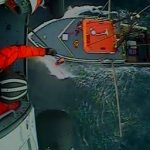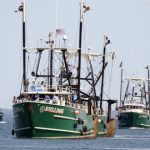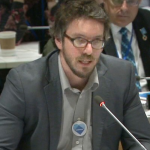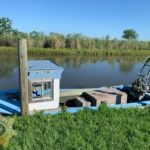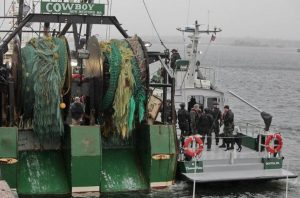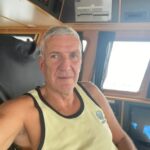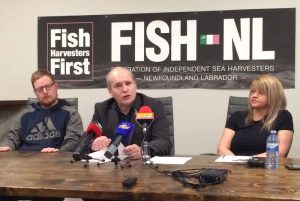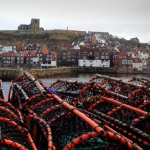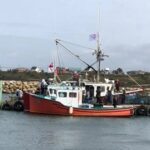Monthly Archives: December 2016
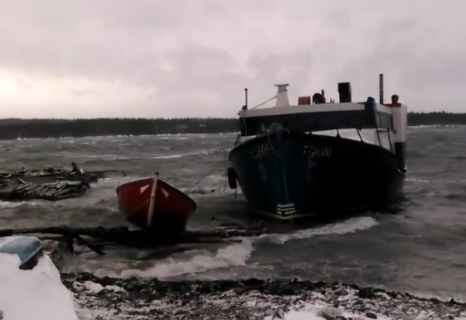
Storm damages fishing boat, raises Holy Hell in western Newfoundland
High winds tore through a home in Lark Harbour, Nfld. on Friday, ripping off the roof and leaving the building in shambles. The RCMP said Friday night the community was experiencing “hurricane force winds,” and warned residents to stay inside. “High winds are blowing large pieces of debris through the air,” the RCMP wrote in a news release at about 8:30 p.m. Friday. “[We ask] people not travel to the area as it’s proving unsafe to do so.” A fishing boat that was featured in Discovery Canada’s Cold Water Cowboys reality series was heavily damaged during severe weather in Port Saunders, on Newfoundland’s west coast. Conway Caines’s fishing vessel, called Sea Doo, was washed into the beach after high tides and heavy winds caused it to break away from a wharf Friday afternoon. More images, Videos, Read the story here 18:56
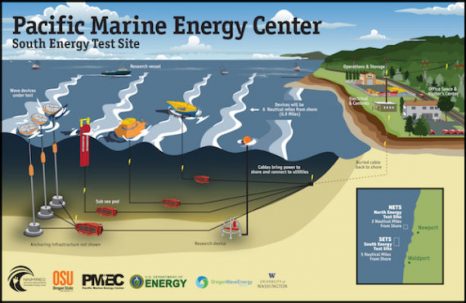
US Doubles Down On Wave Energy, $40 Mil For New Test Bed
It looks like the US is about to get much, much more serious about developing its vast wave energy potential. Researchers have been working at several relatively modest sites in Hawaii and the Pacific Northwest, and now the Energy Department has announced funding for a new, $40 million utility scale test site in the waters of the continental US, off the coast of Oregon. The new wave energy test site will be built and operated under the auspices of Oregon State University’s Northwest National Marine Renewable Energy Center. In a press release announcing the plan to invest up to $40 million in the nation’s first utility scale wave energy test site, the Energy Department noted that more than half of the population of the US lives within 50 miles of a coastline. All things being equal, coastal populations are expected to grow, but getting zero emission energy to coastal regions is becoming more complex and difficult. Aging coastal nuclear power plants will most likely not be replaced, and population density limits the potential for utility scale wind farms and solar arrays on land. Another limitation for land-based renewable energy in coastal areas is the need for new long distance transmission lines. Plans have been in place for years to bring wind power from the wind rich midwest to points east, but the new lines have had to battle against fossil fuel interests as well as local stakeholders. One solution is to tap the waters of the US coastlines. Read the rest here 12:40
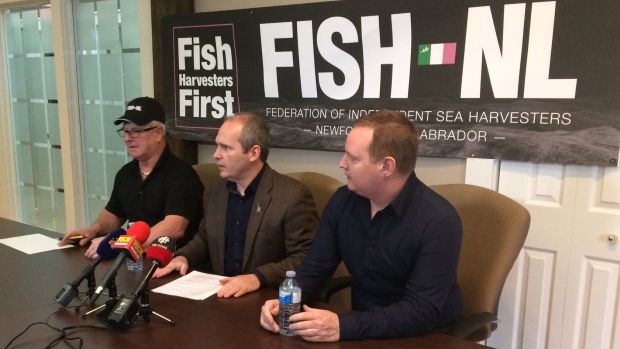
3 reasons the FFAW says FISH-NL can’t be trusted
Friday morning in St. John’s, FISH-NL formally filed for union certification with the Labour Relations Board so its members can leave the FFAW. The board will review the signed membership cards to determine if FISH-NL has enough support to trigger an official certification vote via secret ballot. FFAW secretary-treasurer Dave Decker outlined the reasons his union feels FISH-NL, led by former NDP MP Ryan Cleary, cannot be trusted. Cleary will not reveal how many fish harvesters have pledged their support to FISH-NL by signing the membership cards submitted to the Labour Relations Board Friday. Decker said that shows they don’t have enough support. He said roughly 10,800 harvesters are registered with the Fish Harvesters Certification Board, a provincial body, so FISH-NL knows how many there are. “I don’t think actually that they do have several thousand cards signed,” said Decker. Read the rest here 10:51
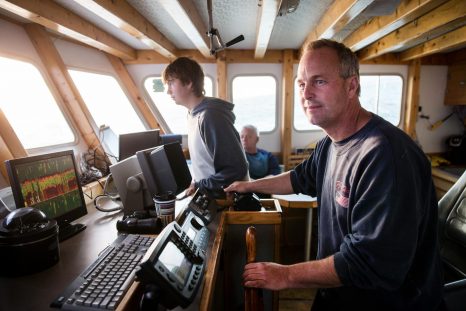
There are more fish in the sea – A high-tech battle for the future of the New England fishing industry
The high-tech battle for the future of the Massachusetts fishing industry is being waged aboard a western-rigged stern trawler named the Miss Emily. Onboard the commercial groundfish vessel, in addition to the satellite positioning system and other sophisticated tools that have become standard in the industry, are at least five computer monitors and a $14,000 fish-measuring board that has halved the time it takes to gauge the catch. State officials say it’s money well spent. Federal catch limits — caps on how many fish each boat can catch — have devastated the state’s most iconic commercial sector, fishermen say. In response to an outcry from the struggling local groundfishing industry, environmental officials are now using the Miss Emily to try to come up with a new — and, they say, more accurate — estimate of codfish in the Gulf of Maine. Under a survey launched last April, local fishermen hope new technology and an aggressive timetable will yield what they have concluded based on their own anecdotal evidence: There are more fish in the sea. Read the story here 09:59
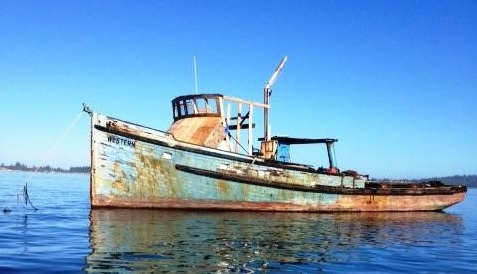
‘F/V Western’ removed from Coos Bay, Marine Board to seek reimbursement from owner
After many months of planning, the F/V Western was removed from Coos Bay on December 21, Oregon State Marine Board said. The work to remove the vessel occurred over the last two weeks by Billeter Marine. The Western, a 70 foot long, 78 gross ton wood-hulled fishing vessel built in 1934, sank near the Empire boat ramp in January, 2015. In August, the Marine Board was awarded a $55,000 grant from the NOAA Marine Debris Program. The project, titled, “A partnership for the removal and prevention of abandoned and derelict fishing vessels along the Oregon Coast,” includes $17,500 matching cash from the Marine Board and $22,500 from the Department of State Lands, as well as in-kind services from Oregon SeaGrant, and staff from the coastal public ports and marinas. Billeter Marine successfully lifted the F/V Western from the water and disposed of the vessel through approved methods on land, officials said. The Marine Board says it will be seeking reimbursement from the owner for the disposal costs. Read the story here 09:25
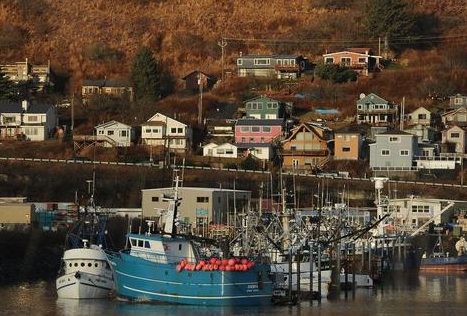
Alaska commercial fishing picks and pans for 2016
The start of 2017 marks the 26th year for this weekly column on Alaska’s seafood industry that aims to make readers aware of the economic and cultural importance of our state’s oldest industry. Alaska fishermen and processors provide 65 percent of our nation’s wild-caught seafood; it is also Alaska’s most valuable export to more than 100 countries around the world. The bulk of Alaska’s fishing fleet of nearly 10,000 vessels is made up of boats less than 50 feet long. Each is a small business that supports several families. For fishing towns like Kodiak, Cordova and Homer, where 500 to 700 vessels are home-ported, those boats are essentially the majority of our downtown store fronts. Call it a mall in a marina. Here are my fishing picks and pans for 2016 — a look back at the best and worst fish stories of 2016, in no order, plus my choice for the biggest story of the year. Laine Welch Read the story here 08:51
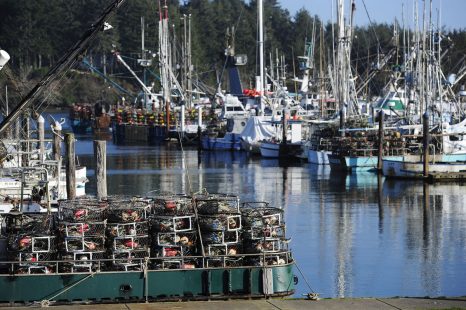
STRIKE!!! – Commercial crabbers strike on West coast
Commercial fisherman from Morro Bay, California, all the way to the Canadian border have gone on strike. Crab pots are piled on boats still tied up in the harbors all along the West coast because Bandon Pacific and other wholesale buyers want to pay 25 cents less than the negotiated price to fishermen on the southern Oregon cost. “This is all over a quarter,” said Charleston fisherman Jim Thornsberry. “Thousands of people are out of work because processors don’t want to pay us what they are already paying fishermen in California.” John Corbin, fisherman out of Columbia River and the chairman of the Dungeness Crab Commission, explained that $3 per pound was the negotiated price prior to the Brookings and Port Orford crab opening. “But then the processors dropped their price on Monday and we went back to the negotiation table, but they drew a line in the sand at $2.75,,, Corbin said there is usually solidarity among fishermen, and is glad “we are all tied up together.” Read the story here 19:11 Crab Fishermen in West Coast Ports Pull Pots in Solidarity with Humboldt Read the story here 20:35
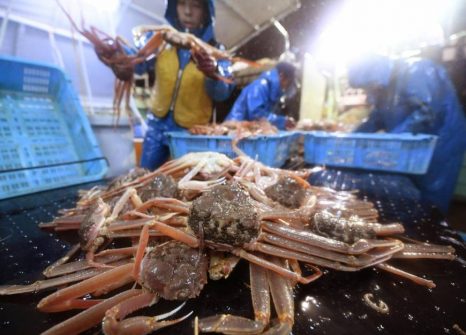
Japan sees crab prices surge as poached Russian imports sink
Prices of crab, a sought-after delicacy in the year-end and New Year’s period, are surging because of a sharp fall in imports, especially from Russia and Alaska. Imports provide most of the crab distributed in Japan, and wholesale prices are some 30 to 50 percent higher than a year ago. Imports of red king crab, a popular variety, came to about 4,270 tons from January to November, less than half the annual record set in 2012. “This year’s red king crab imports could be on par with the level in 2015, which was the lowest in recent years,” said an official of a major fisheries company. Imports of snow crab, another popular species, have also been falling recently, industry officials said. Crab from Russia has been dwindling due to tighter regulations on poaching and illegal exports that began about two years ago. Before that, more than 50 percent of Russian crab distributed in Japan was poached, the fisheries company official said. Ports in Hokkaido that used to be busy handling crab from Russia are now quiet. Read the story here 16:50
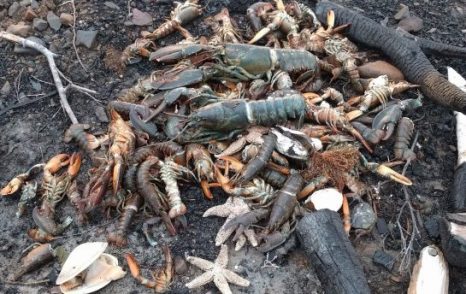
DFO says nothing out of the ordinary with the environment where sea creatures washed up dead
The distressing amount of sea life and diversity of species found dead on some beaches along the Bay of Fundy over the past few weeks has been puzzling. So far, tests haven’t revealed what’s killing the sea life. Federal scientists went out on the water Thursday to examine the physical environment, taking water samples, testing dissolved oxygen, salinity and temperature — all of which were normal. They also scanned images of the bottom of St. Marys Bay off the Bay of Fundy. The video showed normal conditions with no masses of dead organisms that one would expect if the cause was an ongoing environmental problem. “We have ruled out the usual suspects,” said Kent Smedbol, manager of population ecology for DFO. Read the story here 15:31
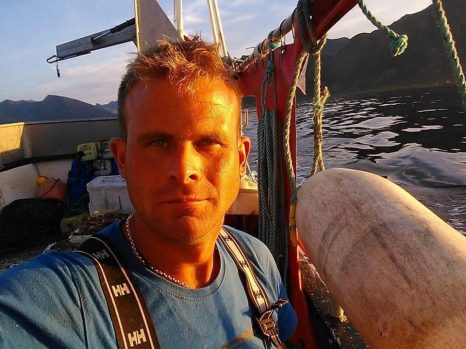
‘Don’t worry, I can do it’ – Tragic final words of experienced fisherman who drowned at sea
A Fisherman with ten years experience downed at sea while trying to untangle a line after telling crew members “don’t worry I can do it”. Darren Brown was swept away while trying to pull free a whelk pot and his body was never found, despite an eight-hour search by lifeboats and a coastguard helicopter. The 37-year-old was lost in the 13C waters in June. A report into his death found a lifebuoy which could have helped to save his life was not “readily available”. On June 9 this year, deckhand Darren and his crewmates were on board the whelk boat, ‘Our Sarah Jane’, which had set sail from Shoreham, West Sussex, in good conditions. Just before midday a fishing line attached to one of the whelk pots became caught in the propeller, tying the boat to the seabed. The skipper radioed for help, but Darren said “I’ll be alright. I can do it, don’t worry” before jumping overboard with a knife in his hand. Read the rest of the story here 14:20
Banana Republic of Mexico and Sea Shepherds Round Up Fishermen to “save” the critically endangered Vaquita
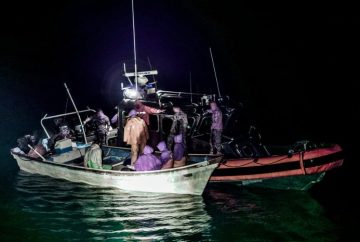 Crew from six fishing boats in Mexico’s Sea of Cortez were arrested by the Mexican Navy, after they were caught using illegal fishing nets to poach banned fish in a marine reserve. The fishermen had been spotted by the Sea Shepherd
Crew from six fishing boats in Mexico’s Sea of Cortez were arrested by the Mexican Navy, after they were caught using illegal fishing nets to poach banned fish in a marine reserve. The fishermen had been spotted by the Sea Shepherd vessel scow Farley Mowat, which tracked the six boats until navy officials could arrive on the scene. According to Sea Shepherd, a nonprofit marine wildlife organization, the fishermen were using banned gill nets to catch totoaba bass, a rare fish Mexican law has protected since 1975 but one that is nonetheless poached for its swim bladders, which, at an estimated US$20,000 per kilo, fetch a high price on China’s black market. The fishing boats were stopped and their crews apprehended without incident. Read the story here 12:25
Governor John Bel Edwards Appoints Jack Montoucet as Louisiana Department of Wildlife and Fisheries Chief
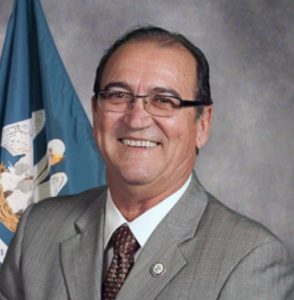 Acadiana lawmaker Jack Montoucet has been appointed secretary of the Louisiana Department of Wildlife and Fisheries by Gov. John Bel Edwards. Montoucet, 69, represents District 42 in the statehouse, which includes Acadia and Lafayette parishes. He has been a fierce ally of Edwards in the House. He officially takes over Jan. 16. Patrick Banks, assistant secretary of the office of fisheries, will serve as interim secretary until then. Montoucet will replace former Secretary Charlie Melancon, who was forced out by the administration. Melancon, a former congressman, clashed with recreational fishermen and U.S. Rep. Garret Graves, R-Baton Rouge, over fisheries management since taking over as secretary. He also had a fractious relationship with some lawmakers for changes within the agency. Read the story here 11:23
Acadiana lawmaker Jack Montoucet has been appointed secretary of the Louisiana Department of Wildlife and Fisheries by Gov. John Bel Edwards. Montoucet, 69, represents District 42 in the statehouse, which includes Acadia and Lafayette parishes. He has been a fierce ally of Edwards in the House. He officially takes over Jan. 16. Patrick Banks, assistant secretary of the office of fisheries, will serve as interim secretary until then. Montoucet will replace former Secretary Charlie Melancon, who was forced out by the administration. Melancon, a former congressman, clashed with recreational fishermen and U.S. Rep. Garret Graves, R-Baton Rouge, over fisheries management since taking over as secretary. He also had a fractious relationship with some lawmakers for changes within the agency. Read the story here 11:23
FISH-NL presents certification application to Labour Relations Board
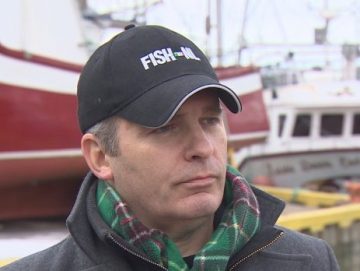 The Federation of Independent Sea Harvesters of Newfoundland and Labrador (FISH NL) presented an application this morning to the Labour Relations Board requesting that the organization be certified as the new bargaining agent for inshore fish harvesters. The application includes membership cards signed by thousands of harvesters from more than 300 communities around the province. “We feel we have the support of more than 50 per cent of all inshore harvesters — we certainly had the support of more than 80 per cent of all harvesters we encountered,” said Ryan Cleary, President of FISH-NL. “What we’re attempting has been described — not as a raid of another union — but as a full fledged revolt.” Over the coming days and weeks, the Labour Relations Board will review FISH-NL’s application and verify the membership cards. The Board will determine whether FISH-NL has the support of at least 40 per cent of fish harvesters, which would trigger a secret ballot vote by the Labour Relations Board. That vote will ultimately decide which union will represent fish harvesters. 10:28
The Federation of Independent Sea Harvesters of Newfoundland and Labrador (FISH NL) presented an application this morning to the Labour Relations Board requesting that the organization be certified as the new bargaining agent for inshore fish harvesters. The application includes membership cards signed by thousands of harvesters from more than 300 communities around the province. “We feel we have the support of more than 50 per cent of all inshore harvesters — we certainly had the support of more than 80 per cent of all harvesters we encountered,” said Ryan Cleary, President of FISH-NL. “What we’re attempting has been described — not as a raid of another union — but as a full fledged revolt.” Over the coming days and weeks, the Labour Relations Board will review FISH-NL’s application and verify the membership cards. The Board will determine whether FISH-NL has the support of at least 40 per cent of fish harvesters, which would trigger a secret ballot vote by the Labour Relations Board. That vote will ultimately decide which union will represent fish harvesters. 10:28
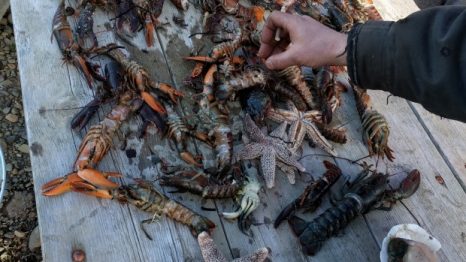
Scientists test water to narrow down what’s killing herring, sea creatures at St. Marys Bay
Federal scientists are testing water samples and scanning images of the bottom of St. Marys Bay, hoping to determine what caused thousands of herring and sea creatures to wash ashore near Digby, N.S. Staff aboard a vessel gathered samples Thursday and used an underwater camera to film and photograph the ocean floor. Kent Smedbol, manager of population ecology for the Department of Fisheries and Oceans (DFO) in the Maritimes, said the data will be examined to try to figure out whether an environmental factor caused the fish to die. “It could be an intrusion of very cold water very rapidly, it could be related to a rapid change in salinity with the storms that have gone through … due to the sudden influx of fresh water, rain or runoff from the land,” he said. “Depending on what we find, then hopefully that will allow us to discount a number of possibilities and focus our efforts on some possible explanations.” Read the story here 08:55
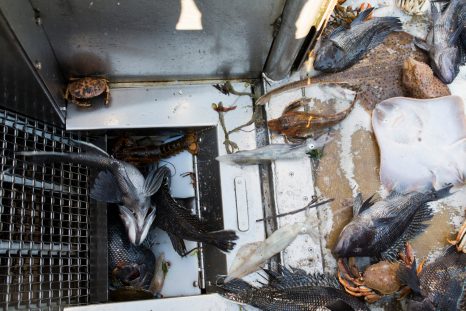
Fish Seek Cooler Waters, Leaving Some Fishermen’s Nets Empty
Studies have found that two-thirds of marine species in the Northeast United States have shifted or extended their range as a result of ocean warming, migrating northward or outward into deeper and cooler water. Lobster, once a staple in southern New England, have decamped to Maine. Yet fishing regulations, which among other things set legal catch limits for fishermen and are often based on where fish have been most abundant in the past, have failed to keep up with these geographical changes. Reflecting these tensions, Senators Richard Blumenthal and Christopher S. Murphy, both Democrats of Connecticut, noted in a letter to the acting inspector general of the Commerce Department in June that fishermen in their state were experiencing “extreme financial hardship” because the apportionment of resources was so outdated. Although such shifts in allocations are possible, said Tom Nies, the executive director of the New England Fishery Management Council, in practice they are difficult to execute. “If you’re giving fish to somebody, you’re taking them away from somebody else,” Mr. Nies said. Read the article here 08:03
FISH-NL leaders to meet with Labour Relations Board, address reporters on Friday
 The leaders of an upstart union movement in Newfoundland and Labrador will reveal their strategy for a certification bid Friday, months after launching a bitter and divisive campaign to try and raid the province’s influential fisheries union. Representatives from the Federation of Independent Sea Harvesters (FISH-NL) will visit the Labour Relations Board in St. John’s in the morning, and plans to speak with reporters at their office on Job Street at 11 a.m. “All will be revealed tomorrow,” FISH-NL president Ryan Cleary said. The FFAW has also ramped up its criticism in recent weeks, accusing FISH-NL of having no real plan for the fishery and trying to weaken the bargaining power of harvesters. Read the story here 18:48
The leaders of an upstart union movement in Newfoundland and Labrador will reveal their strategy for a certification bid Friday, months after launching a bitter and divisive campaign to try and raid the province’s influential fisheries union. Representatives from the Federation of Independent Sea Harvesters (FISH-NL) will visit the Labour Relations Board in St. John’s in the morning, and plans to speak with reporters at their office on Job Street at 11 a.m. “All will be revealed tomorrow,” FISH-NL president Ryan Cleary said. The FFAW has also ramped up its criticism in recent weeks, accusing FISH-NL of having no real plan for the fishery and trying to weaken the bargaining power of harvesters. Read the story here 18:48
Ringing in new round of ‘fish wars’ as ADFG manages budget
 In the face of yet another round of budget cuts, Alaska’s largest private employer, the seafood industry, will have entirely new management schemes to sort out and live under in 2017 alongside status quo projections for harvest in key fisheries. The Alaska Department of Fish and Game will take another budget cutback responding to the state’s multi-billion dollar deficit that has yet to be patched. Gov. Bill Walker released a proposed fiscal year 2018 budget on Dec. 15. Among other cuts, Walker proposes a budget of $28.9 million for ADFG. This is a 36 percent reduction from the fiscal year 2015. ADFG will have to find ways to deal with budget cuts to monitor key fisheries stocks, including the iconic king salmon that has fallen in abundance beginning in the late 2000s. Further, commercial fisheries management programs will suffer,,, Fish wars renewed – As usual, much of Alaska’s year will center around salmon. Among the biggest items for Alaska’s state fisheries will be the two-week 2017 Upper Cook Inlet meeting of the Alaska Board of Fisheries. Read the rest of the article here 16:25
In the face of yet another round of budget cuts, Alaska’s largest private employer, the seafood industry, will have entirely new management schemes to sort out and live under in 2017 alongside status quo projections for harvest in key fisheries. The Alaska Department of Fish and Game will take another budget cutback responding to the state’s multi-billion dollar deficit that has yet to be patched. Gov. Bill Walker released a proposed fiscal year 2018 budget on Dec. 15. Among other cuts, Walker proposes a budget of $28.9 million for ADFG. This is a 36 percent reduction from the fiscal year 2015. ADFG will have to find ways to deal with budget cuts to monitor key fisheries stocks, including the iconic king salmon that has fallen in abundance beginning in the late 2000s. Further, commercial fisheries management programs will suffer,,, Fish wars renewed – As usual, much of Alaska’s year will center around salmon. Among the biggest items for Alaska’s state fisheries will be the two-week 2017 Upper Cook Inlet meeting of the Alaska Board of Fisheries. Read the rest of the article here 16:25
Georges Bank said to be ‘paved with fluke! Fishermen Assail NOAA Quotas – Schumer fears major job losses
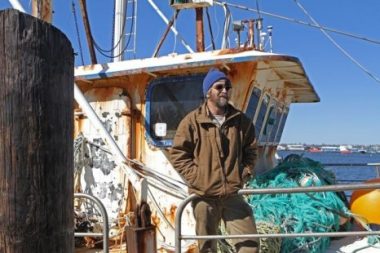 Commercial fishermen on the draggers seen offshore last week took advantage of calmer seas and the State Department of Environmental Conservation’s raising of the daily limit on fluke from 70 to 210 pounds. The higher limit was in effect from Dec. 18 through Friday as the state’s annual quota for the fish, highly sought by commercial and recreational fishermen alike, had not been reached.,, Mark Phillips, who fishes on the F/V Illusion out of Greenport, was once among the largest harvesters of fluke in the state, landing a few hundred thousand pounds per year, by his count. The problem, Mr. Phillips said, is that stock assessments are inaccurate because NOAA conducts surveys — such as with its ship the Henry B. Bigelow, which collects data in waters from Maine to North Carolina — when fluke are migrating from undersea canyons to inshore waters. Read the story here 14:49
Commercial fishermen on the draggers seen offshore last week took advantage of calmer seas and the State Department of Environmental Conservation’s raising of the daily limit on fluke from 70 to 210 pounds. The higher limit was in effect from Dec. 18 through Friday as the state’s annual quota for the fish, highly sought by commercial and recreational fishermen alike, had not been reached.,, Mark Phillips, who fishes on the F/V Illusion out of Greenport, was once among the largest harvesters of fluke in the state, landing a few hundred thousand pounds per year, by his count. The problem, Mr. Phillips said, is that stock assessments are inaccurate because NOAA conducts surveys — such as with its ship the Henry B. Bigelow, which collects data in waters from Maine to North Carolina — when fluke are migrating from undersea canyons to inshore waters. Read the story here 14:49
Provincial fees could hurt Port Saunders fisherman’s business
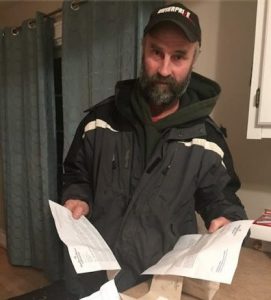 Eugene Caines, a commercial fisherman from Port Saunders, hopes to continue operating a cod grow-out site. However, fees being imposed by the province, may shut him down. What was once just a $100 fee for cod grow-out, he says, has jumped to $500 to $2,000 in just a few years. The aquaculture renewal fee for cod grow-out operations, imposed by the province’s Department of Fishery, Forestry and Agrifoods, is $1000 for 2017. Then there’s the new annual fee, established by the province’s Department of Environment and Climate Change. That’s another $1,000. Given the fee increases, Caines hopes to be able to combine his cod quota with another harvester in 2017, to not only have more quota but to possibly reduce manpower costs. Cains also needs to know whether or not he will be able to use traps to catch cod. Read the story here 12:40
Eugene Caines, a commercial fisherman from Port Saunders, hopes to continue operating a cod grow-out site. However, fees being imposed by the province, may shut him down. What was once just a $100 fee for cod grow-out, he says, has jumped to $500 to $2,000 in just a few years. The aquaculture renewal fee for cod grow-out operations, imposed by the province’s Department of Fishery, Forestry and Agrifoods, is $1000 for 2017. Then there’s the new annual fee, established by the province’s Department of Environment and Climate Change. That’s another $1,000. Given the fee increases, Caines hopes to be able to combine his cod quota with another harvester in 2017, to not only have more quota but to possibly reduce manpower costs. Cains also needs to know whether or not he will be able to use traps to catch cod. Read the story here 12:40
South Carolina Working Waterfront: Rural attitude, commercial fishing still embraced in McClellanville
 McClellanville stands apart from other working waterfronts in South Carolina in a couple of important ways. Its geographic isolation has helped maintain a rural attitude, and commercial fishing remains the economic driver for the community. These days, the town that got its start as a summer resort for plantation owners has the least touristy feel of South Carolina coastal communities. The small commercial section of the Jeremy Creek waterfront is dominated by two commercial docks—at Carolina Seafood and Livingston’s Bulls Bay Seafood. A public boat landing with limited parking spaces gets crowded on weekends and during the public shrimp-baiting season in the fall, but most of those boats head into the Intracoastal Waterway and leave the working waterfront behind. Read the rest of the story here 12:06
McClellanville stands apart from other working waterfronts in South Carolina in a couple of important ways. Its geographic isolation has helped maintain a rural attitude, and commercial fishing remains the economic driver for the community. These days, the town that got its start as a summer resort for plantation owners has the least touristy feel of South Carolina coastal communities. The small commercial section of the Jeremy Creek waterfront is dominated by two commercial docks—at Carolina Seafood and Livingston’s Bulls Bay Seafood. A public boat landing with limited parking spaces gets crowded on weekends and during the public shrimp-baiting season in the fall, but most of those boats head into the Intracoastal Waterway and leave the working waterfront behind. Read the rest of the story here 12:06
2016 hauled in mixed bag for Alaska commercial fisheries
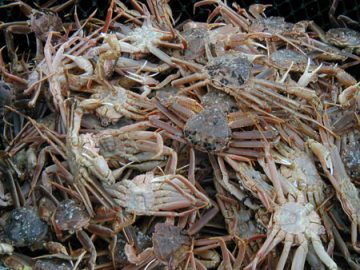 As with any season, 2016 had plenty of winners and losers in the Alaska commercial fishing industry. The year started off with a huge sigh of relief from Upper Cook Inlet salmon setnet fishermen when the Alaska Supreme Court over-ruled a decision by a Superior Court judge that would have allowed a ballot measure to ban setnets in “urban areas,” but was targeted at Cook Inlet. If the ballot measure had been allowed to go to a vote and had won, it not only would have made it more difficult to manage the sockeye fishery, but it also would have eliminated the livelihood of the 700 Upper Cook Inlet setnet permit holders, 85 percent of which are Alaska residents. At the beginning of the year, halibut fishermen were feeling optimistic,,, Salmon fisheries across the state fell far short of expectations,,, Read the rest of the story here 11:33
As with any season, 2016 had plenty of winners and losers in the Alaska commercial fishing industry. The year started off with a huge sigh of relief from Upper Cook Inlet salmon setnet fishermen when the Alaska Supreme Court over-ruled a decision by a Superior Court judge that would have allowed a ballot measure to ban setnets in “urban areas,” but was targeted at Cook Inlet. If the ballot measure had been allowed to go to a vote and had won, it not only would have made it more difficult to manage the sockeye fishery, but it also would have eliminated the livelihood of the 700 Upper Cook Inlet setnet permit holders, 85 percent of which are Alaska residents. At the beginning of the year, halibut fishermen were feeling optimistic,,, Salmon fisheries across the state fell far short of expectations,,, Read the rest of the story here 11:33
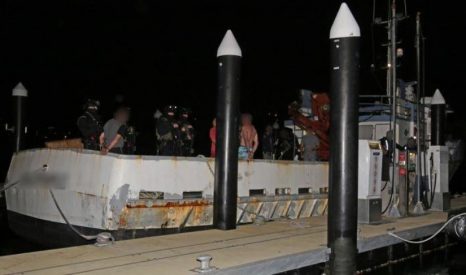
Police smash cocaine smuggling ring at Sydney Fish Market in Christmas Day raid
A former rugby league first grade player, a Bondi entrepreneur and several fishermen are among 15 men arrested on Christmas Day in a multimillion-dollar cocaine ring bust. Police will allege the syndicate imported more than a tonne of cocaine via NSW ports and included experienced fisherman, marine workers and company owners. Australian Federal Police Acting Assistant Commissioner Chris Sheehan described the alleged syndicate as “robust, resilient and determined”. Several of the men were arrested on Christmas Day on board a shipping vessel named Dalrymple docked at the Brooklyn Marina on the Central Coast. Read the story here 10:36
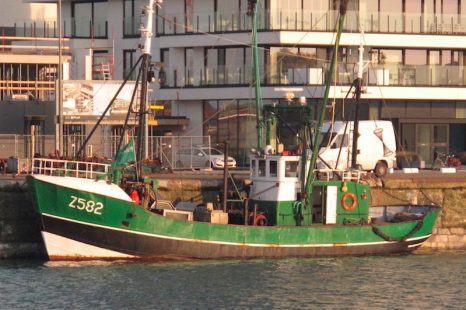
Search called off for missing crew member of capsized Belgian-registered fishing boat Assanat Z-582
The Coastguard has called off a search for a crew member missing at sea after a fishing boat (identified here through FiskerForum.com)capsized off the Kent coast. One crew member was winched to safety from the Belgian-registered boat, while another was also rescued from the water later, but has since died the other remains missing. UK Coastguard duty controller, Kaimes Beasley, told Sky News a “passing merchant vessel” had spotted an “upturned hull with a gentleman clinging to it” just after 7.30am. He said a Coastguard helicopter and three RNLI lifeboats, from Ramsgate and Harwich, had been involved in the search, focusing on an area from north east of Ramsgate to the mid-channel. He later told reporters: “This has been an extensive and comprehensive search of the area. “We are standing down the search this evening because of the fading light. “It is unlikely that the search will resume in the morning unless we get further information that will help us find the third crew member.” Link 08:45
Crab fishermen strike for higher price per-pound from Bodega Bay north through Oregon and Washington
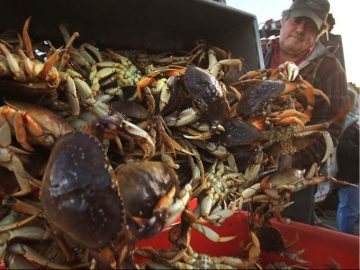 Crabbers from Bodega Bay north through Oregon and Washington to the Canadian border went on strike Wednesday afternoon after wholesale Dungeness crab buyers sought to lower the per-pound price fishermen earn for the much sought-after crustacean. Fishermen have agreed to either cease crabbing in areas off the Sonoma Coast where the Dungeness crab season has already opened, or delay the start of their season in hopes of retaining the $3-per-pound price they have earned fishing in Northern California’s rich waters so far this year, according to Lorne Edwards, president of the Bodega Bay Fisherman’s Marketing Association, an industry trade group. Read the rest of the story here 07:48
Crabbers from Bodega Bay north through Oregon and Washington to the Canadian border went on strike Wednesday afternoon after wholesale Dungeness crab buyers sought to lower the per-pound price fishermen earn for the much sought-after crustacean. Fishermen have agreed to either cease crabbing in areas off the Sonoma Coast where the Dungeness crab season has already opened, or delay the start of their season in hopes of retaining the $3-per-pound price they have earned fishing in Northern California’s rich waters so far this year, according to Lorne Edwards, president of the Bodega Bay Fisherman’s Marketing Association, an industry trade group. Read the rest of the story here 07:48
FFAW’s 5-cent-a-pound lobster ‘levy’ most shocking of all secrets uncovered in 2016
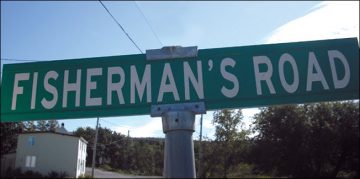 Of all the questions that have been raised about FFAW secrecy/conflict of interest in recent months, one of the most shocking discoveries was that the union had proposed a 5 cent a pound ‘levy’ on lobster. Fish harvesters didn’t know about the FFAW proposal (how unbelievable is that?) until FISH-NL brought it to light in early December, and it was the Seafood Producers of Newfoundland and Labrador who actually killed it (how’s that for the ultimate irony, processors standing up for harvesters — and not their union). Find details of the FFAW proposal here. The FFAW argued the 5 cent levy was to cover the union’s “management” of the fishery. To quote the union: “The bulk of the work once conducted by DFO is now being done by the FFAW, with no financial or in-kind support from the processing sector.” Read the rest of the post here, and open FFAW proposal.
Of all the questions that have been raised about FFAW secrecy/conflict of interest in recent months, one of the most shocking discoveries was that the union had proposed a 5 cent a pound ‘levy’ on lobster. Fish harvesters didn’t know about the FFAW proposal (how unbelievable is that?) until FISH-NL brought it to light in early December, and it was the Seafood Producers of Newfoundland and Labrador who actually killed it (how’s that for the ultimate irony, processors standing up for harvesters — and not their union). Find details of the FFAW proposal here. The FFAW argued the 5 cent levy was to cover the union’s “management” of the fishery. To quote the union: “The bulk of the work once conducted by DFO is now being done by the FFAW, with no financial or in-kind support from the processing sector.” Read the rest of the post here, and open FFAW proposal.
Crab price spat delays season – Fishermen in District 7 not fishing until the buyer offers the original $3
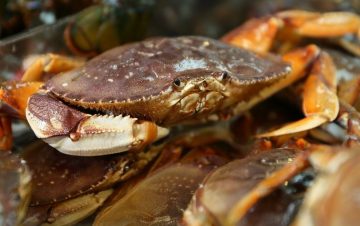 Negotiations with Pacific Group failed to secure an acceptable price range for local crab fisherman in District 7, stretching from Humboldt Bay’s North Jetty to Point Arena in Mendocino. Crab prices have been set $3 a pound since the November opening of the season. Pacific Group, which owns Pacific Choice Seafood in Humboldt County, has proposed crab prices be reduced to $2.75 per pound. According to Ken Bates, vice president of the Humboldt Fishermen’s Marketing Association, if fisherman decided to fish for less, local boats would lose between $7,000 to $10,000 for the average medium to small boat. “Fisherman representatives have been meeting all (Tuesday) afternoon in Newport, Oregon, and as of 4 p.m. there have not been any resolutions. We may continue (Wednesday) and there’s a possibility that the Oregon Department of Fish and Wildlife will set a mediation, which is a compromised price on the crab,” Bates said. “The buyer wanted to drop the price and attempted to lower it by 25 cents.” Read the story here 13:53
Negotiations with Pacific Group failed to secure an acceptable price range for local crab fisherman in District 7, stretching from Humboldt Bay’s North Jetty to Point Arena in Mendocino. Crab prices have been set $3 a pound since the November opening of the season. Pacific Group, which owns Pacific Choice Seafood in Humboldt County, has proposed crab prices be reduced to $2.75 per pound. According to Ken Bates, vice president of the Humboldt Fishermen’s Marketing Association, if fisherman decided to fish for less, local boats would lose between $7,000 to $10,000 for the average medium to small boat. “Fisherman representatives have been meeting all (Tuesday) afternoon in Newport, Oregon, and as of 4 p.m. there have not been any resolutions. We may continue (Wednesday) and there’s a possibility that the Oregon Department of Fish and Wildlife will set a mediation, which is a compromised price on the crab,” Bates said. “The buyer wanted to drop the price and attempted to lower it by 25 cents.” Read the story here 13:53






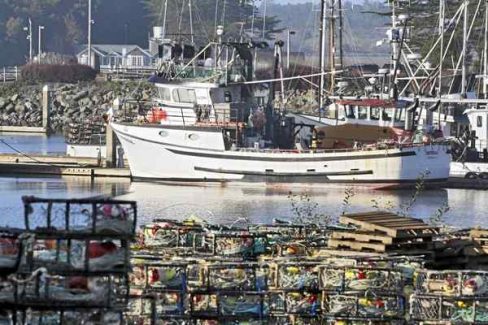
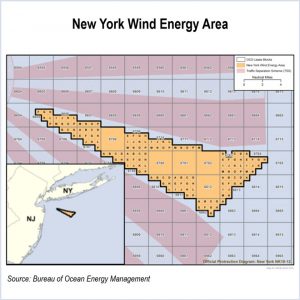 Could sea scallops and longfin squid be reason enough to stop an offshore wind farm on the coast of New York and New Jersey? The Fisheries Survival Fund, which represents the majority of the U.S. Atlantic scallop industry, claims the site picked for the farm is on documented fishing grounds for both commercially important species. It claims the wind turbines would shut fishermen out. The group is the lead plaintiff in a federal lawsuit filed against the Bureau of Ocean Energy Management (BOEM) and Sally Jewell, the secretary of the U.S. Department of the Interior. The BOEM has jurisdiction over the sea floor. Other plaintiffs include the Garden State Seafood Association, the Fishermen’s Dock Co-Operative in Point Pleasant Beach and the Borough of Barnegat Light.
Could sea scallops and longfin squid be reason enough to stop an offshore wind farm on the coast of New York and New Jersey? The Fisheries Survival Fund, which represents the majority of the U.S. Atlantic scallop industry, claims the site picked for the farm is on documented fishing grounds for both commercially important species. It claims the wind turbines would shut fishermen out. The group is the lead plaintiff in a federal lawsuit filed against the Bureau of Ocean Energy Management (BOEM) and Sally Jewell, the secretary of the U.S. Department of the Interior. The BOEM has jurisdiction over the sea floor. Other plaintiffs include the Garden State Seafood Association, the Fishermen’s Dock Co-Operative in Point Pleasant Beach and the Borough of Barnegat Light. 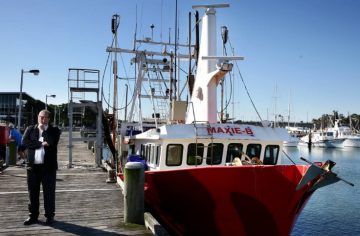 The head of the Newcastle Fisherman’s Cooperative says he doesn’t know how many members will leave as a result of the Baird government’s commercial fishing reforms. Robert Gauta has told a NSW parliamentary inquiry that the reforms had led to “uncertainty” over how many of its members “will stay and how many will go”. Set to come into play from the middle of 2017, the government’s reforms to the $90 million commercial fishing industry link fishing rights with catch levels. The government argues the reform will make the industry sustainable, but the introduction of minimum shareholdings will also mean commercial fishers may need to increase their holdings to maintain the same catch level. “The cooperative makes money when the fishers catch fish; it is that simple … fewer fisherman would mean fewer fish.”
The head of the Newcastle Fisherman’s Cooperative says he doesn’t know how many members will leave as a result of the Baird government’s commercial fishing reforms. Robert Gauta has told a NSW parliamentary inquiry that the reforms had led to “uncertainty” over how many of its members “will stay and how many will go”. Set to come into play from the middle of 2017, the government’s reforms to the $90 million commercial fishing industry link fishing rights with catch levels. The government argues the reform will make the industry sustainable, but the introduction of minimum shareholdings will also mean commercial fishers may need to increase their holdings to maintain the same catch level. “The cooperative makes money when the fishers catch fish; it is that simple … fewer fisherman would mean fewer fish.”  In a slap in the face to fishermen, Tribes, environmental justice advocates, conservationists and family farmers, President Obama on December 16 signed the Water Infrastructure Improvements for the Nation (WIIN) Act into law with its environmentally destructive Big Ag rider sponsored by Senator Dianne Feinstein (D-CA) and Congressman Kevin McCarthy (R-CA). The controversial rider in the bill, opposed by retiring Senator Barbara Boxer, taints an otherwise good bill that sponsors water projects across the nation. The last minute rider, requested by corporate agribusiness interests, allows San Joaquin Valley growers and Southern California water agencies to pump more water out of the Delta, driving Sacramento River winter-run Chinook salmon, Central Valley steelhead, Delta and longfin smelt, green sturgeon and other fish species closer and closer to extinction, according to Delta advocates.
In a slap in the face to fishermen, Tribes, environmental justice advocates, conservationists and family farmers, President Obama on December 16 signed the Water Infrastructure Improvements for the Nation (WIIN) Act into law with its environmentally destructive Big Ag rider sponsored by Senator Dianne Feinstein (D-CA) and Congressman Kevin McCarthy (R-CA). The controversial rider in the bill, opposed by retiring Senator Barbara Boxer, taints an otherwise good bill that sponsors water projects across the nation. The last minute rider, requested by corporate agribusiness interests, allows San Joaquin Valley growers and Southern California water agencies to pump more water out of the Delta, driving Sacramento River winter-run Chinook salmon, Central Valley steelhead, Delta and longfin smelt, green sturgeon and other fish species closer and closer to extinction, according to Delta advocates. 


























